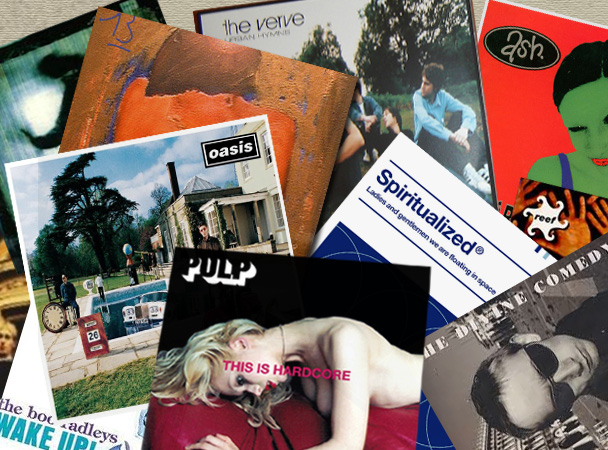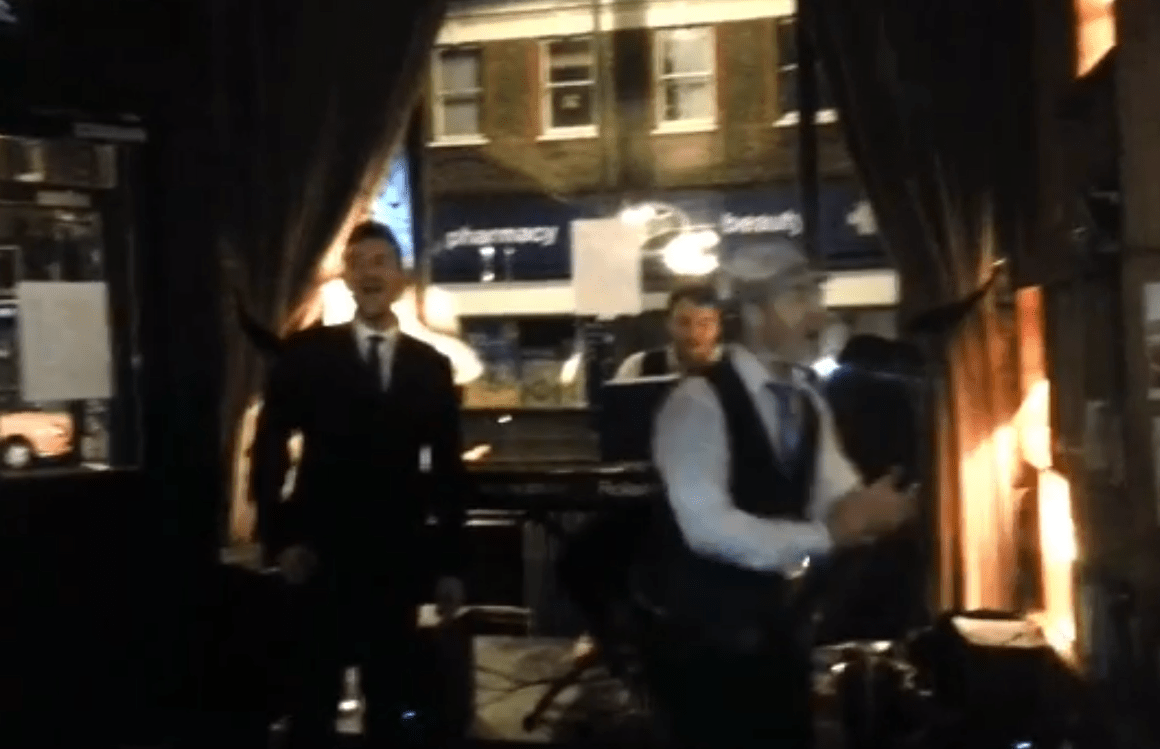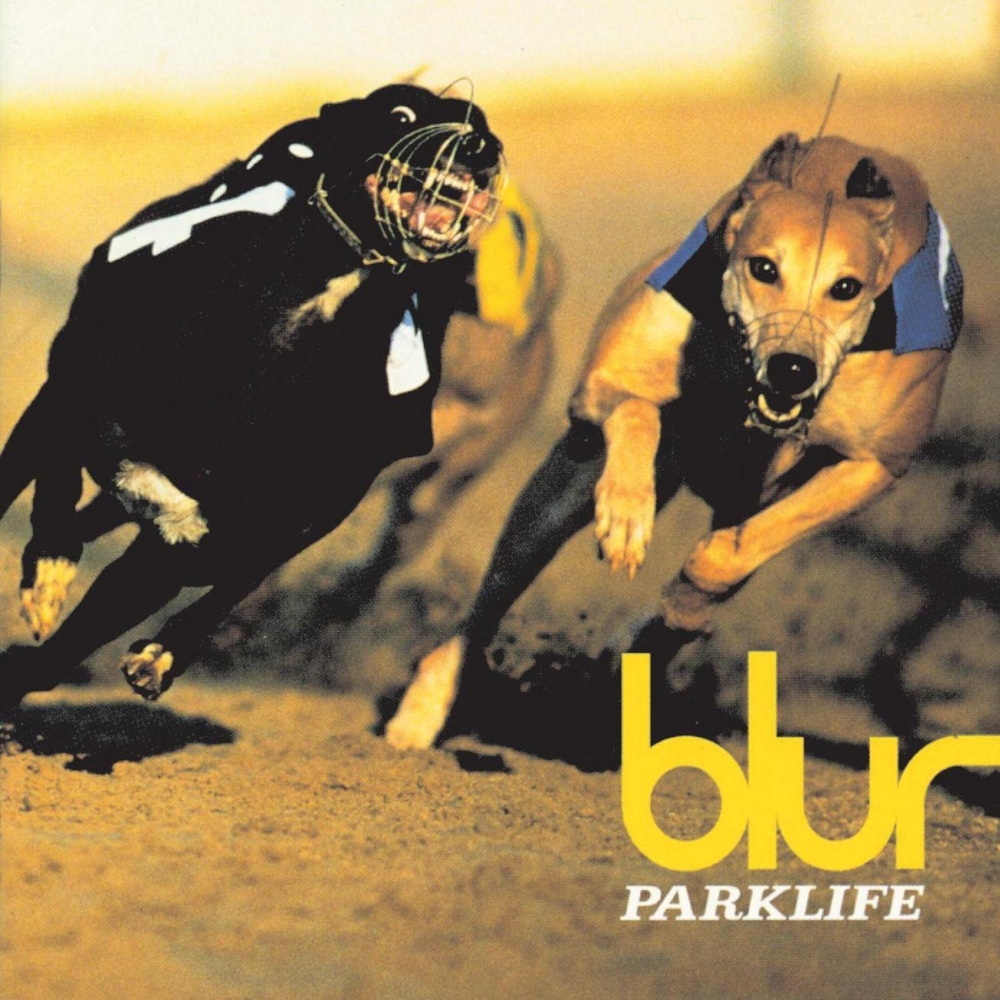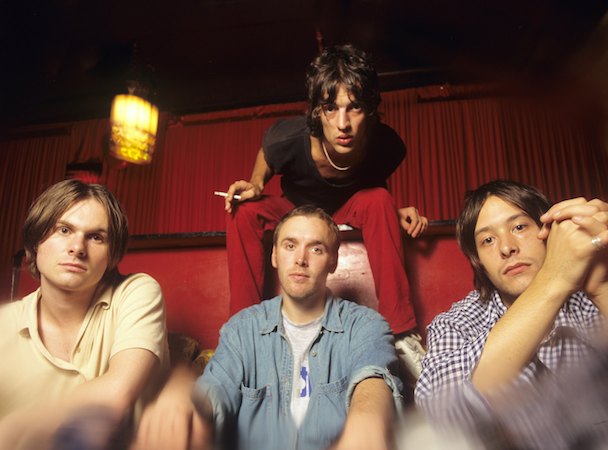At every gig they've played since their much-hyped 2011 reunion, Pulp's set opener has been "Do You Remember The First Time?" It's a typically Pulpian move, simultaneously tongue-in-cheek and incredibly revealing -- and, of course, ultimately about sex. By starting their shows with "Do You Remember the First Time?," Pulp concedes that reunion tours are essentially nostalgia trips for a large portion of the audience. If you do remember the first time you saw Pulp, you want to relive it. If you don't, all you want is a credible facsimile. This gig is not the time nor place for an aging band to work out new material, and everyone knows it.
The chorus reveals another layer: "Do you remember the first time?/ I can't remember a worse time/ But you know that we've changed so much since then/ Oh yeah, we've grown." Jarvis Cocker is talking about virginity there, sure, but he's also inviting scrutiny on the first three Pulp albums, It, Freaks, and Separations, none of which are represented in most of the band's reunion-era set lists. Those albums weren't what Pulp was about in 1994 when "Do You Remember The First Time?" appeared on their commercial breakthrough, His 'N' Hers, and they sure as hell aren't what Pulp is about now. So opening with "Do You Remember The First Time?" is not only an invitation for Pulp's audience to remember the first time, but also to misremember it, ignoring the semi-failures of the band's first three albums and jumping straight to the hits. That's a whole lot of meaning packed into a dirty little pop song, which is basically the Pulp experience in a nutshell.
If we take the band's taste in their own back catalog seriously, this week marks 20 years since Pulp first mattered. His 'N' Hers was the first Pulp album to chart in the band's native UK (#9), as well as their first to produce charting singles: "Razzmatazz," "Lipgloss," and "Do You Remember The First Time?" It was successful as a reinvention, too, essentially washing away the collective memory of the long-running experimental synthesizer group and replacing it with the image of the most studious, most prurient band doing this new thing called Britpop. Whether it was fair or not, Pulp were associated with a scene that made Cocker seem downright professorial at 30, and this was before he even had his now-trademark beard and glasses. It, Freaks and Separations aren't without their charming moments, but His 'N' Hers changed the conversation. Pulp weren't necessarily angling for the top of the charts now, but they'd put together how to get there.
The seeds for Pulp's second act were planted prior to His 'N' Hers, but just barely. In his great 2011 retrospective on the band, The Quietus editor Luke Turner identified "My Legendary Girlfriend" as the "moment where the brilliance of Pulp as a pop band -- seedy, intense, original, yet with a catchiness and wry everyman approach that could make them chart-toppers -- first became really clear." The track first appeared on a 1990 12", then a 1992 7", then finally as the obvious standout on Separations, and Candida Doyle's insistent synth showed Pulp's keenness for playing fast and loose with the chasm between dance music and rock. The song wasn't a hit, but you can see its importance on His 'N' Hers tracks like "She's A Lady" and "Acrylic Afternoons." Pulp's early recordings are marred by a lack of confidence and youthful inexperience that "My Legendary Girlfriend" obliterated. And then every song on His 'N' Hers obliterated it.
Seriously, the only thing you really have to talk about when it comes to His 'N' Hers (and Different Class and This Is Hardcore, but we'll get to them later) is the songs. Each one is utterly unfuckwithable and slotted perfectly in sequence. I can't even move on until I name drop every single one, so bear with me for a few sentences: "Joyriders" kicks things off with some of the band's heaviest guitar riffage ever courtesy of Russell Senior and ends with Cocker's creepiest, breathiest whisper. That gives way to the serpentine, contemptuous finger-pointing of "Lipgloss" and the surprising sweetness of "Acrylic Afternoons." Then comes "Have You Seen Her Lately?," the leering "Babies," the dance club banger "She's A Lady," and the sentimental "Happy Endings." Then "Do You Remember The First Time?" raises the stakes, and the double-entendre-as-pop-song "Pink Glove" raises them again. The ballad "Someone Like the Moon" and the seven-minute epic "David's Last Summer" provide a brief respite from the nonstop hits machine, but then "Razzmatazz" -- on the U.S. CD version only, but that's the version most of us heard first -- lets the album end on what's arguably its very best track. If a great pop album is just a set of great pop songs, then Pulp made three of the greatest of all time between 1994 and 1998. His 'N' Hers was more impressive, if not clearly better, than Different Class and This Is Hardcore because it came almost out of nowhere.
His 'N' Hers also saw Pulp become Pulp in the most crucial way of all: Jarvis Cocker came into his own as a lyricist. There were inklings of his libidinous erudition before, including on "My Legendary Girlfriend," but his work on tracks like "Babies," "Pink Glove," and "Razzmatazz" placed him firmly in an acerbic class of his own. Sometimes he dressed his prurience in innocence ("We listened to your sister/ When she came home from school/ She was two years older/ And she had boys in her room") and other times pushed the limits of good taste with an analogy ("He doesn't care what it looks like/ Just as long as it's pink and it's tight" almost certainly isn't about a glove). Whatever his approach, he was successful in shining a harsh and honest light on human sexuality that still remains uncommon in pop. He didn't just sing about sex, either, even when he was singing about sex. He filtered it through musings on the British class system, gender politics, crime, familial dysfunction, and addiction. His 'N' Hers was Cocker's breakthrough. It's no coincidence that the book that collects his finest lyrics is called Mother Brother Lover -- it was on His 'N' Hers that he started using those easy rhymes less for ease of melody and more to paint complicated relationships within a pop context. To this day, he's peerless.
For better or worse, it's impossible to talk about Pulp in 1994 without talking about Britpop in 1994. The two most enduring albums lumped in with the movement that weren't by Pulp -- Blur's Parklife and Oasis' Definitely Maybe -- came out that same year. Britpop's shift from NME-approved buzzword to actual genre tag was well underway, and if you trusted the music weeklies, Britain's soul was at stake in the Oasis-Blur rivalry. Despite having been a band since 1978, the success of His 'N' Hers felt just out-of-nowhere enough to make Pulp seem like a part of this new wave sweeping Britannia. Their Sheffield origin made them outsiders to a London-driven scene, as did their intellectual bent, but all catchy guitar music coming out of Britain in 1994 was being called Britpop, so the tag stuck. What's remarkable about listening to His 'N' Hers, Definitely Maybe, and Parklife one after the other 20 years later isn't just how great they all are, but how little they resemble one another. It's liberating to hear them free of the context of their alleged movement. If anything, it makes it seem even more incredible just how much amazing guitar pop was coming out of Britain at the same time. Pretending Britpop was a cohesive, tight-knit scene was a convenient way of explaining its quality, but it's more impressive without being shoehorned into an easy context.
But to some extent, Pulp will probably always be remembered as a Britpop band, and from an American perspective, they'll always be remembered as one of the unsuccessful ones. His 'N' Hers and Different Class were megahits back home, but they never cracked the U.S. charts. Neither did any Pulp single, not even the ubiquitous "Common People," which reached #2 in the UK and was recently called one of the top ten greatest songs of all time by NME. Britpop or not, Pulp were always just a little too British for most Americans, and the embarrassingly non-extensive nature of their reunion touring in the U.S. suggests that little has changed. It's a shame that in the country most responsible for driving the world's popular music conversation, Pulp are a footnote to a footnote of a movement. The truth is they're the most relistenable, enduring band of the Britpop era, and that for a three-album run starting in 1994, they were the best pop band in the world, period. His 'N' Hers is where that all starts. It's a masterpiece, and 20 years in the cellar have only made it hit harder.
[videoembed size="full_width" alignment="center"][/videoembed]
[videoembed size="full_width" alignment="center"][/videoembed]
[videoembed size="full_width" alignment="center"][/videoembed]






